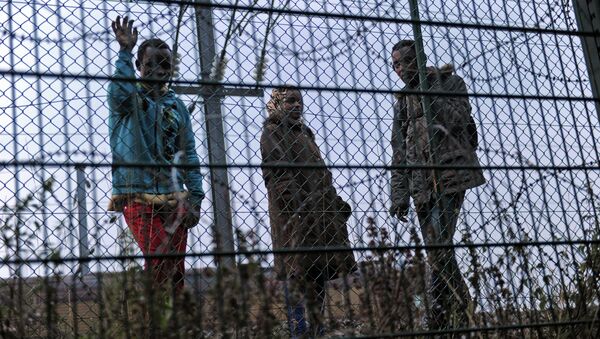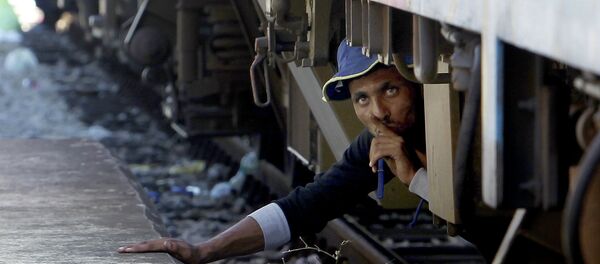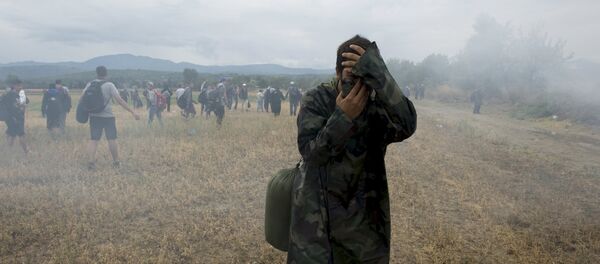Interior minister Thomas de Maiziere told reporters last week that more than 360,000 migrants have flooded into Germany this year, including a record of 83,000 in July that he predicted would be broken in August.
The minister said temporary housing was in short supply. The country has room for 45,000 people in temporary facilities but estimates it needs up to 150,000 places.
Germany remains the top destination for refugees in Europe, receiving 43 percent of all asylum applications in the 28-nation European Union, Thomas de Maiziere said, adding that Europe has to come up with a better way to share the burden.
"The immigrants who arrive in Germany this year alone will cost the government 10 billion euros," Spain’s El Mundo wrote, adding that Chancellor Angela Merkel was looking for ways to either curtail or reroute the migrant flows to the Balkans.
The latest country to be overwhelmed by the surge is the tiny Balkan nation of Macedonia. It declared a state of emergency Thursday and said it would deploy the military to restore calm to its southern border with Greece and its northern frontier with Serbia.
Many of the refugees are fleeing the wars in Iraq and Syria and had recently made their way from Turkey to Greek islands.
Migrants in Macedonia said they are especially anxious to move now that Hungary — the transit land north of Serbia on the long route to Germany — has decided to build a fence to keep migrants out.
Building fences will hardly solve the problem though. There is already one blocking entry to the Eurotunnel running under the English Channel.
Another one prevents African migrants from entering European territory via the Spanish enclaves of Ceuta and Melilla on the North African coast.
And yet another one which Hungary is now erecting in a bid to stem the ever-growing tide of migrants from neighboring Serbia…




